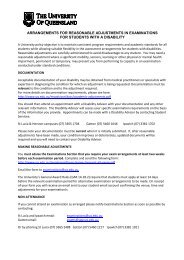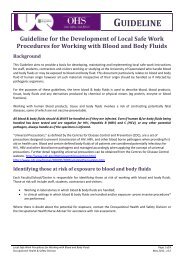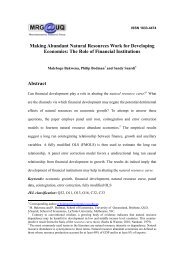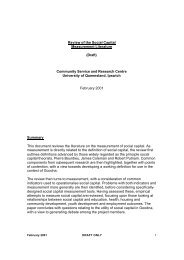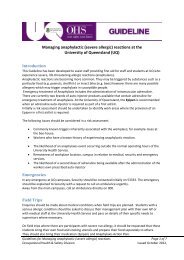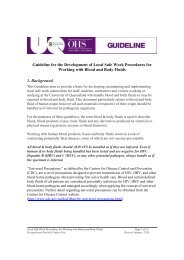Recognising and Responding to Domestic and Family Violence
Recognising and Responding to Domestic and Family Violence
Recognising and Responding to Domestic and Family Violence
Create successful ePaper yourself
Turn your PDF publications into a flip-book with our unique Google optimized e-Paper software.
Self-Care<br />
Care- Cont’d<br />
Not giving up on her. If she leaves him <strong>and</strong> then returns, this is her choice.<br />
Even if you feel that she may get abused again, remember this is her choice as<br />
it is her life, not yours. This does not mean that you have failed. It is important<br />
that you remain open <strong>to</strong> supporting her, otherwise she may feel that she cannot<br />
ask you for help next time she needs it. Talk <strong>to</strong> her about a safety plan. Talk <strong>to</strong><br />
her about her not being a failure for returning<br />
Remembering that most women do what they can <strong>to</strong> survive <strong>and</strong> know their<br />
situation the best. Try not <strong>to</strong> be judgemental, be encouraging but not controlling<br />
Never placing yourself at risk, call the police if necessary<br />
Not feeling that her well-being or her children’s well being is your sole<br />
responsibility. Don’t expect you can do everything for them<br />
Knowing your own limits in terms of time, energy <strong>and</strong> knowledge<br />
Underst<strong>and</strong>ing that we each have responsibility <strong>to</strong> care for others but we are<br />
not <strong>to</strong>tally responsible for another person’s well being. Be guided by the woman<br />
regarding her needs, but also look after yourself


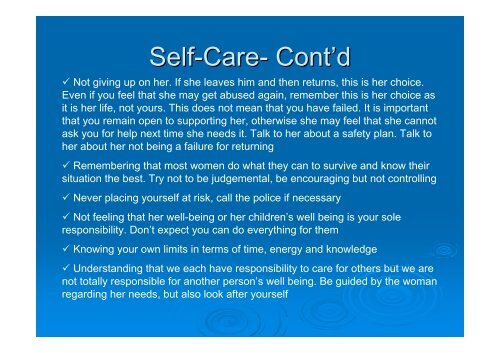

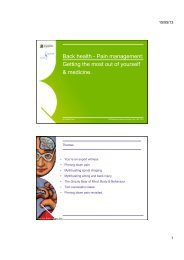
![Recycling [ PDF, 62KB ] - University of Queensland](https://img.yumpu.com/51805185/1/184x260/recycling-pdf-62kb-university-of-queensland.jpg?quality=85)
